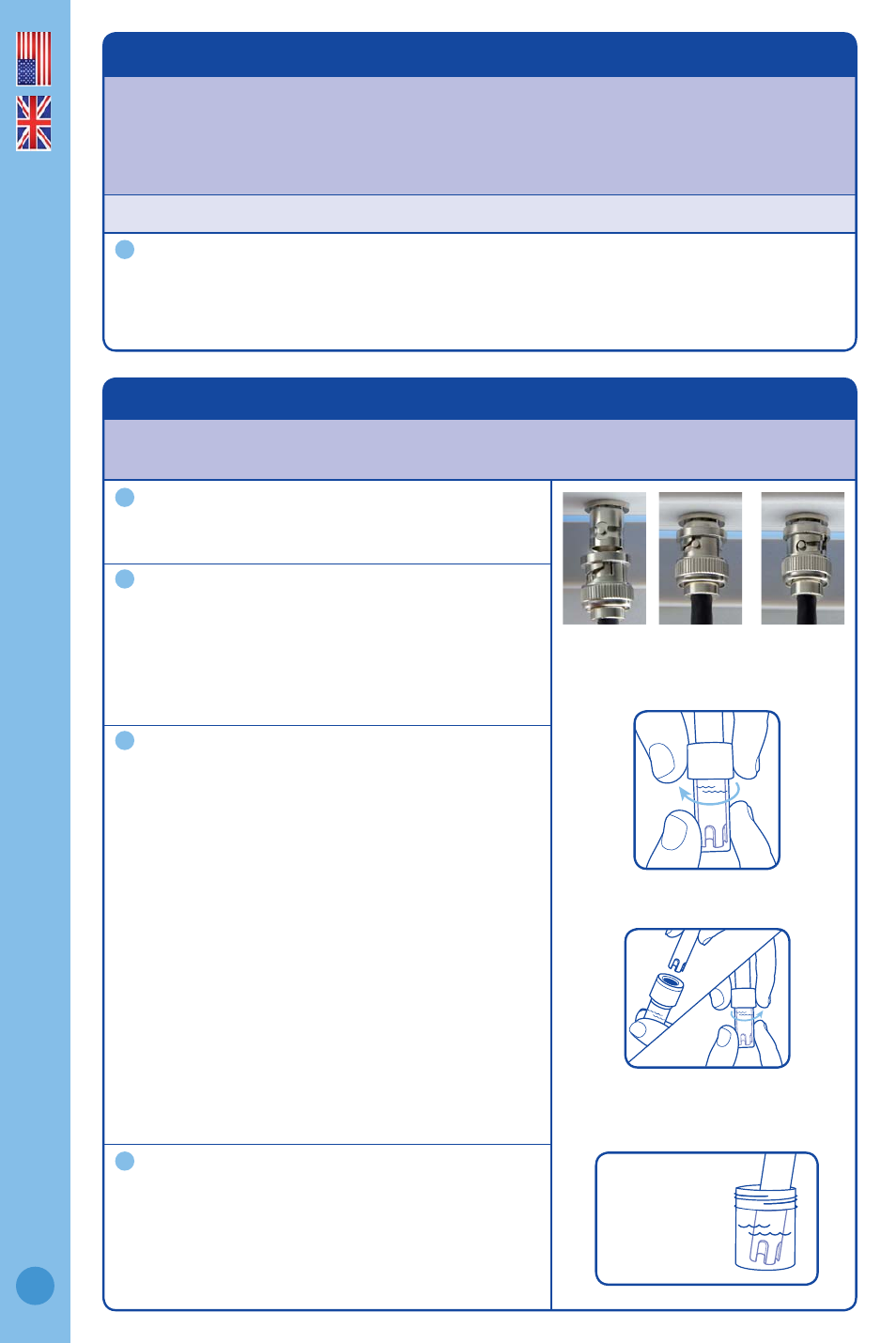Introduction 3 preparing for use, 0 introduction, 0 preparing for use – Bluelab Combo Meter User Manual
Page 3: English

English
3
1.0 Introduction
The Bluelab Combo Meter has three press buttons; ‘pH / calibrate’, ‘nutrient / units’
and ‘temp / units’. The buttons have a short press and long press function. A short
press means a button is released in about one second. The long press is a button
being held for at least three seconds and released when the display starts fl ashing.
Turning the Combo Meter on
A short press of any button turns the Combo Meter on. The Combo Meter
automatically turns off after four minutes if no buttons are pressed. If the Combo
Meter turns off before the reading is taken, a short press of any button will turn the
Combo Meter on again.
1
2.0 Preparing for use
The following tasks must be performed before the Bluelab Combo Meter is used for
the fi rst time.
Insert batteries.
See section 6.0.
Connect pH probe
Connect the pH probe to the pH meter by lining
up the lugs of the BNC fi ttings. Fasten securely
by pushing the pH probe connector on and
twisting one quarter turn.
Remove the storage cap
a) Remove the pH probe storage cap by
gripping the top of the cap and gently
twisting the base one rotation clockwise to
loosen slightly. Next slowly slide the cap off
the pH probe.
DO NOT completely remove the base of the
cap from the top of the cap.
CAUTION: When the pH probe is not in use, add
enough Bluelab pH Probe KCl Storage Solution to
the storage cap so the probe tip is covered. Then
replace the cap and store in a secure place.
DO NOT use RO (Reverse Osmosis), Distilled
or De-ionized water. Pure water changes the
chemistry in the reference, causing the probe
to die.
Calibrate the pH
Calibrate the combo meter by following the
instructions in section 3.0 of this manual.
This must be done before the
Combo Meter is used for the fi rst time.
1
2
3
4
Attaching the
Bluelab pH Probe to the Meter
Removing pH probe
storage cap
Ensure probe tip is covered by
the KCl storage solution in cap
Inserting
Twisting
Attached
See section 3.0
for calibration
steps
